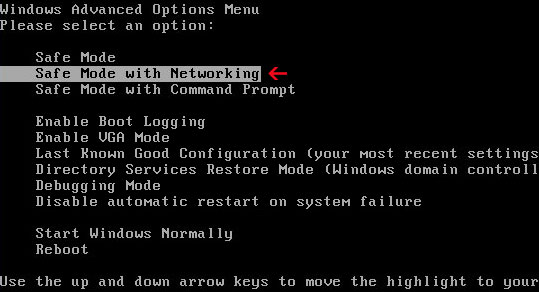
Win HDD is from the same family as HDD Control and HDD Defragmenter. It's promoted mainly through the use of fake online scanners and advertisements. The rogue program may install itself on your computer without your permission and knowledge through the use of trojans and other malicious software. The scammers may also distribute their bogus software on Facebook, Twitter and other social networks. Please do not download or install anything from suspicious websites; otherwise you can end up with a rogue program on your computer.
While Win HDD is running, it will display fake pop-ups titled "Critical Error!", "System Restore" from your Windows taskbar. The text of some of the fake alerts you will see include:
Critical Error
Hard Drive not found. Missing hard drive.
Critical Error
RAM memory usage is critically high. RAM memory failure.
Critical ErrorIt will block nearly all programs on your computer but if you attempt to run a program enough times it will eventually work. The fake alert that you will see when you attempt run a program are:
Windows can't find hard disk space. Hard drive error
Windows detected a hard drive problem.Ironically, Win HDD detects the same system errors and issues on different computers. It goes without saying that you should remove this rogue program from your computer as soon as possible. If you have already purchased this bogus program then please contact your credit card provider and dispute the charges. Then please follow Win HDD removal instructions below. If you have any questions or additional information, please leave a comment. Good luck and be safe online!
A hard drive error occurred while starting the application.
Win HDD removal instructions using Process Explorer (in Normal mode):
1. Download Process Explorer and end Win HDD process:
- [SET OF RANDOM CHARACTERS].exe, e.g. 1648411579.exe
NOTE: in some cases the rogue program may block anti-malware software. Before saving the selected program onto your computer, you may have to rename the installer to iexplore.exe or winlogon.exe With all of these tools, if running Windows 7 or Vista they MUST be run as Auto Infoistrator. Launch the program and follow the prompts. Don't forget to update the installed program before scanning.
3. New threats appear every day. In order to protect your PC from such (new) infections we strongly recommend you to use ESET Smart Security.
Win HDD removal instructions (in Safe Mode with Networking):
1. Reboot your computer is "Safe Mode with Networking". As the computer is booting tap the "F8 key" continuously which should bring up the "Windows Advanced Options Menu" as shown below. Use your arrow keys to move to "Safe Mode with Networking" and press Enter key. Read more detailed instructions here: http://www.computerhope.com/issues/chsafe.htm

NOTE: Login as the same user you were previously logged in with in the normal Windows mode.
2. Download free anti-malware software from the list below and run a full system scan.
NOTE: in some cases the rogue program may block anti-malware software. Before saving the selected program onto your computer, you may have to rename the installer to iexplore.exe or winlogon.exe With all of these tools, if running Windows 7 or Vista they MUST be run as Auto Infoistrator. Launch the program and follow the prompts. Don't forget to update the installed program before scanning.
3. New threats appear every day. In order to protect your PC from such (new) infections we strongly recommend you to use ESET Smart Security.
Win HDD associated files and registry values:
Files:
- %Temp%\[SET OF RANDOM CHARACTERS]
- %Temp%\[SET OF RANDOM CHARACTERS].exe
- %Temp%\dfrg
- %Temp%\dfrgr
- %Temp%\[SET OF RANDOM CHARACTERS].dll
- %UserProfile%\Desktop\HDD Control.lnk
- %UserProfile%\Start Menu\Programs\Win HDD\
- %UserProfile%\Start Menu\Programs\Win HDD\Win HDD.lnk
- %UserProfile%\Start Menu\Programs\Win HDD\Uninstall Win HDD.lnk
C:\Documents and Settings\[UserName]\Local Settings\Temp (in Windows 2000/XP)
C:\Users\[UserName]\AppData\Local\Temp (in Windows Vista & Windows 7)
%UserProfile% refers to:
C:\Documents and Settings\[UserName]\ (in Windows 2000/XP)
C:\Users\[UserName]\ (in Windows Vista & Windows 7)
Registry values:
- HKEY_CURRENT_USER\Software\Microsoft\Windows\CurrentVersion\Run "[SET OF RANDOM CHARACTERS]"
- HKEY_CURRENT_USER\Software\Microsoft\Windows\CurrentVersion\Run "[SET OF RANDOM CHARACTERS].exe"
No comments:
Post a Comment